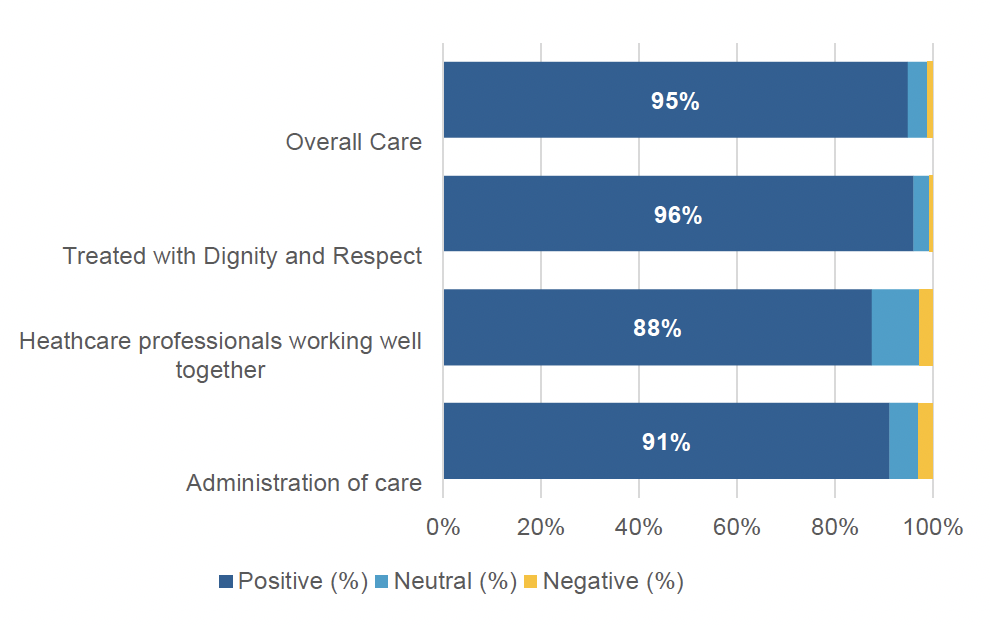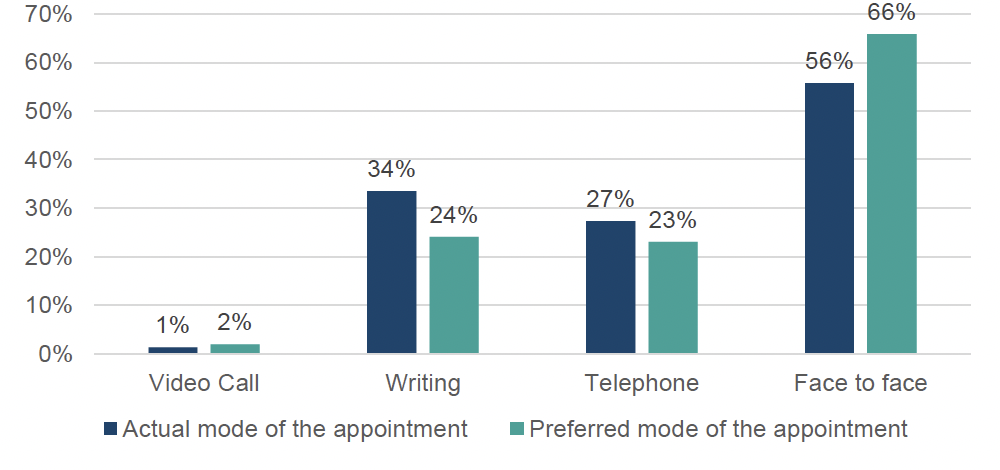Scottish Cancer Patient Experience Survey 2024: national report
The report shows the results of the Scottish Cancer Patient Experience Survey 2024.
Overall Experience
Rating of care
- 95% of people are positive about the overall care received, the same as in 2018 and slightly higher than in 2015 (94%).
- 96% agreed that they were treated with dignity and respect by the healthcare professionals always or most of the time, slightly lower than in 2018 (97%).
- 88% agreed that different people treating and caring for them (i.e. General Practice, hospital staff, specialist nurses, community nurses) worked well together to give the best possible care always or most of the time (91% in 2018).
- 91% rated positively the administration of care, for example getting letters at the right time, doctors having the right notes / test results, etc.
95% of people are positive about the overall care received

Care plan and written notes of treatments received
A care plan is a document received after diagnosis which sets out the patient’s needs and goals. This may include what treatment has been planned for them and the emotional, practical and financial support they will receive. It is agreed between the patient and the health or social care professionals.
- 28% received a care plan (similar to 2018).
- 59% received a written note for all the treatments, higher than in 2018 (51%).
Travelling to appointments
- 68% of people found it quite easy or very easy to travel to appointments relating to cancer care.
- 14% found it neither easy nor difficult.
- 18% found it very difficult or quite difficult.
The above percentages were similar to 2018.
- Length of travel, cost of travel / parking, timing of appointments relative to travel and frequency of travel were the most experienced difficulties.
- The vast majority of people travelled by car to receive their care.
Communication and support by family / friends
- 81% of people were able to bring a family member, friend or someone else to appointments for support all or most of the time.
- Of those who were not able to bring someone to an appointment or test, 83% reported that there were no alternative arrangements made for support.
Face to face appointments are the preferred method for initial contact from the hospital.

Research Opportunities
The survey asked whether anyone discussed any cancer research opportunities that they could take part in (for example: clinical trials, tissue donation, additional scans, sharing data):
- 27% of people responded that this was discussed.
- 41% said this was not discussed but they would have liked to do so.
- 32% said this was not discussed, and they didn't want it.
What they had to say about their overall experience:
“My care was excellent in every aspect and I have absolutely no criticism to make of any aspect of my care.”
“Overall, everything was good. For such a huge thing like cancer to become part of your life I’m just glad to be in the hands of professionals. Good people, everyone I met.”
“I have to chase up the six monthly appointments for a check up which should be for the next 5 years. It’s no problem, but nice to be reminded by letter.”
“…In summary I felt I could have fallen through the net regarding follow-up if I had not been pro-active. Having to travel to [hospital name] for MRI scans and radiotherapy was not ideal - but I recognise that not every hospital can have all the necessary technology.”
Contact
Email: patientexperience@gov.scot
There is a problem
Thanks for your feedback